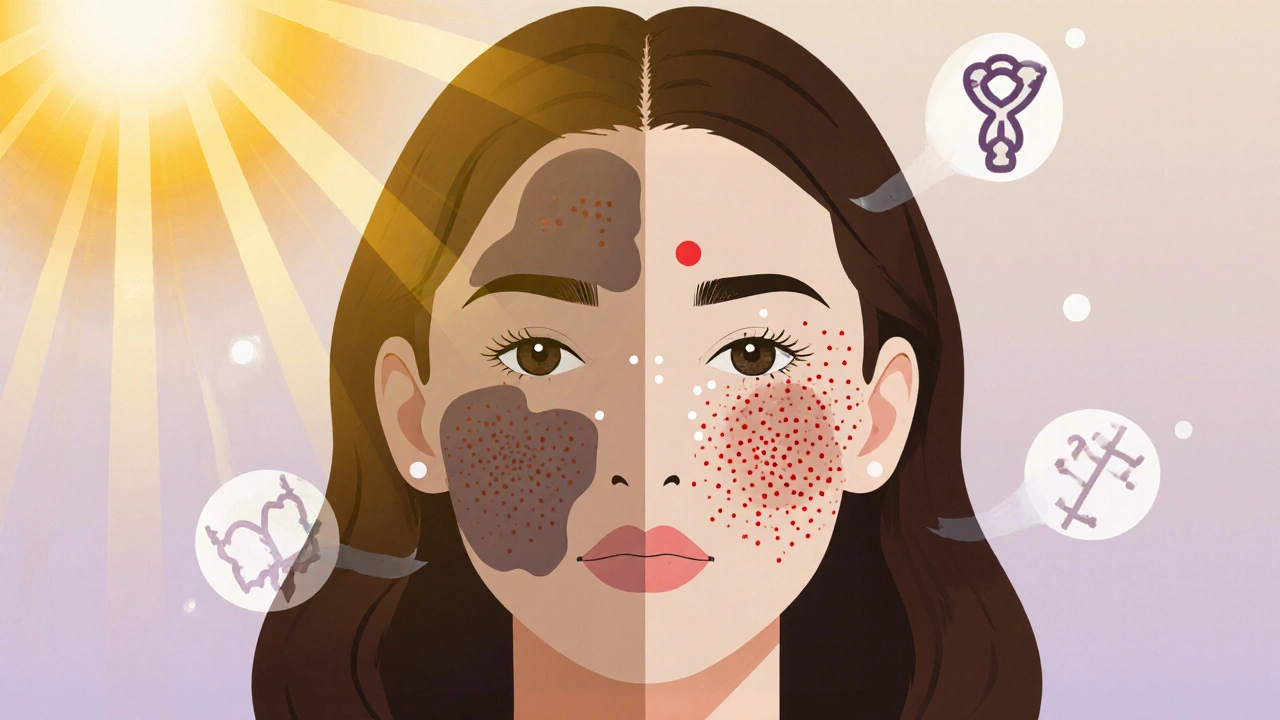Skin Care: Essential Tips, Products, and What Really Works
When it comes to skin care, a daily routine that protects, cleanses, and nourishes the skin to maintain health and prevent damage. Also known as dermatological hygiene, it's not about fancy serums or expensive brands—it’s about consistency, understanding your skin type, and knowing what actually works. Too many people jump from one trend to the next, buying products based on Instagram ads instead of science. The truth? Your skin doesn’t need 10 steps. It needs the basics: gentle cleansing, hydration, and daily sunscreen, a topical product that blocks harmful UV rays to prevent aging and skin cancer. Skip it, and even the priciest moisturizer won’t save you from wrinkles or dark spots.
Most skin problems—acne, dryness, redness, or sensitivity—start with simple mistakes. Washing your face with harsh soap, skipping sunscreen on cloudy days, or using too many active ingredients at once can wreck your skin barrier. moisturizers, formulations designed to restore and maintain skin hydration by trapping water in the outer layer aren’t just for dry skin. Even oily skin needs them. Look for lightweight, non-comedogenic options. And if you’re dealing with acne treatment, methods or products used to reduce breakouts by targeting bacteria, oil, or inflammation, don’t reach for scrubbing pads or toothpaste. Over-the-counter benzoyl peroxide or salicylic acid works better than half the TikTok hacks out there. If it doesn’t improve in 6–8 weeks, see a dermatologist. No, it’s not overkill—it’s smart.
There’s no one-size-fits-all routine. Your skin changes with seasons, hormones, stress, and even what you eat. What helped last winter might irritate you in summer. The key is observation: track what you use, how your skin reacts, and adjust slowly. You don’t need to spend hundreds. A good cleanser, a simple moisturizer, and daily sunscreen will outperform a cabinet full of untested products. And if you’re using prescription creams or supplements for skin health, make sure you understand how they interact with other meds—some can make your skin more sensitive to the sun or cause unexpected side effects.
Below, you’ll find real, practical guides on what works and what doesn’t. From choosing the right sunscreen to understanding how antibiotics affect your skin, these posts cut through the noise. No fluff. No hype. Just clear advice based on how your skin actually behaves.










